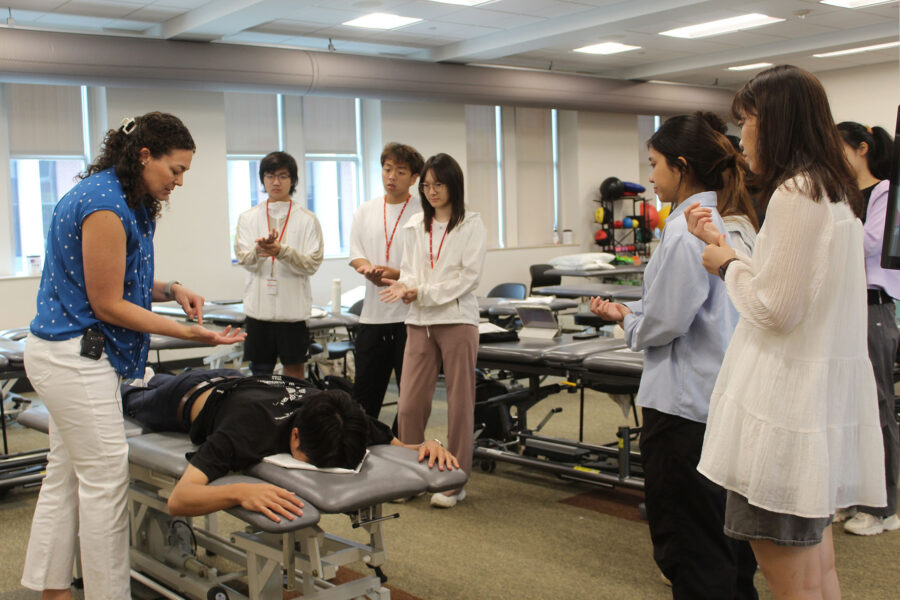Participants in this summer’s UNMC Summer Experiential Education Program in physical therapy left the program having learned two important professional skills – problem-solving and empathy.
Designed for international physical therapy and rehabilitation students, the SEED program is a three-week, in-person summer experience at UNMC.
Administered by the UNMC Office of Global Engagement and delivered by the UNMC Physical Therapy Program, the program offers a comprehensive approach to learning. Students gain hands-on experience through research lab practice, see real-world applications during clinical observations, interact with UNMC doctorate in physical therapy students, and attend lectures and group discussions.
Beyond their studies, the 10 students from three universities in Asia participated in several cultural activities.
“The most important thing I learned is how to integrate evidence-based practice with advanced clinical techniques like blood flow restriction training and manual therapy,” participant Zhaojie “Chelsea” Wang said. “I observed how therapists at UNMC use clinical reasoning to choose the right intervention and adjust it in real-time based on patient response.”
Wang said the approach helped her realize “that physical therapy is not just about applying techniques, but about understanding the ‘why’ behind each decision.”
Said participant Hsiang “Adam” Hu: “Many of the courses allowed me to step into the patient’s shoes and truly understand their experiences. It gave me a deeper sense of empathy and reminded me that patients are more than just case studies or textbook examples.”
Hannah Tong, executive director of academic partnerships in the UNMC Office of Global Engagement, said the program, in its eighth year, provides international students with a unique opportunity to gain a global perspective on rehabilitation and physical therapy in the U.S. and take this knowledge back to their home universities.
Joseph Siu, PhD, professor for the UNMC Physical Therapy Program and chair of global health opportunities program in the UNMC College of Allied Health Professions, said the students left UNMC with a greater sense of problem-solving and empathy in care.
“These skills are essential for providing compassionate and effective care in a complex and ever-changing field of physical therapy,” Dr. Siu said.
